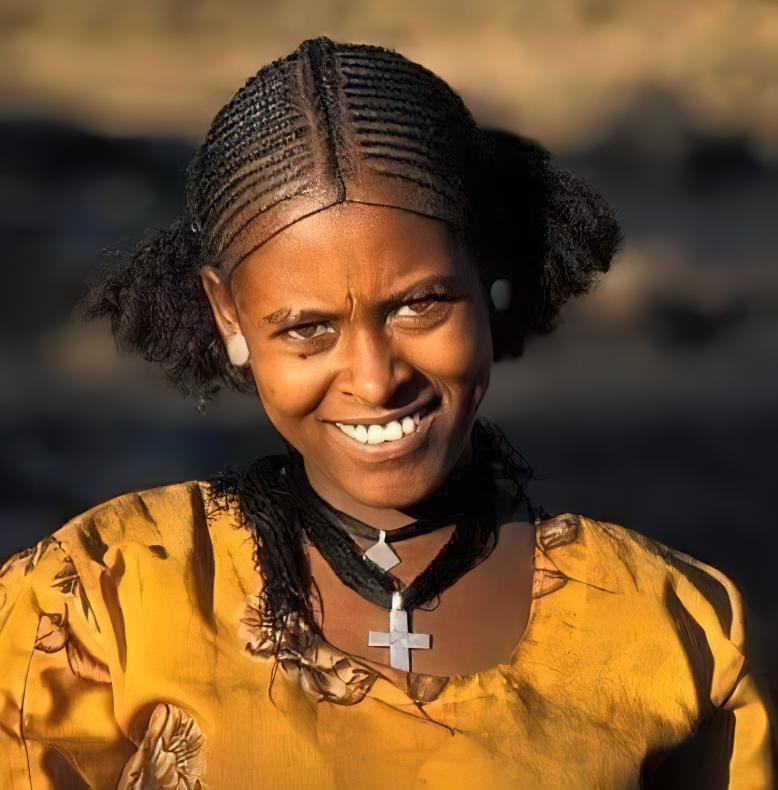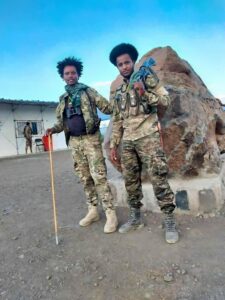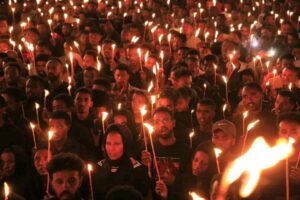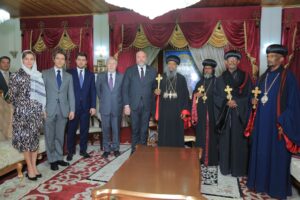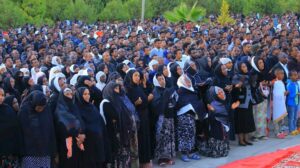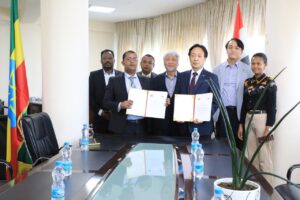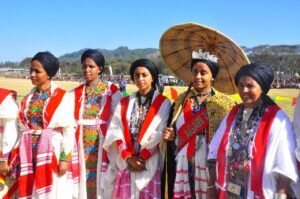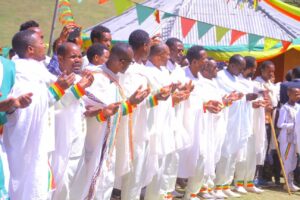Ethiopia › Forums › Food for thought › The war in Tigray is being complicated by ideological ambitions
-
AuthorPosts
-
31st December 2020 at 10:39 pm #6001st January 2021 at 8:52 pm #604
The Historic Al-Nejashi Mosque
The Historic Al-Nejashi Mosque in Ethiopia’s Tigray region, looted & destroyed, Built in the 7th Century, It’s the first Mosque in Africa, One of the oldest in the world it looks like this today The mosque is believed to have been built by companions of Prophet Muhammad, (Peace Be Upon Him).

This is not acceptable by any means and it is an insult to Ethiopian Muslims.
We have lost thousands of Tigrian Muslim and Christians. We had even pleaded with UAE to respect the land of Al Nejashi since its a holy land, but it seems they didn’t care.
Al Nejashi Mosque in Tigray is as old as Islam. It was built in honour of righteous Christian King who gave shelter to 1st Muslim refugees, including close relatives of Prophet Mohammed(PBU), who had escaped persecution in Mecca.

This was the mosque a few years ago after being fully restored by a Turkish Govt agency
Ethiopia Autonomous Media
1st January 2021 at 9:12 pm #6051st January 2021 at 9:14 pm #6061st January 2021 at 9:19 pm #607Tigray cut of from the rest of the world
Two months of blackout and Tigray cut of from the rest of the world. Malnutrition & Famine is on the rise.
59 days of:

- No Water & Food
- No Cell phone Service
- No Internet Service
- No Bank service
- No Electricity
- No Transportation Access
- No Drug Supply
Ethiopia Autonomous Media
2nd January 2021 at 1:19 am #611security in Metekel, Benishangul Gumuz region
Taskforce established to restore peace and security in Metekel, Benishangul Gumuz region, said several detainees were found in prisons held without trial for two & more years.

Lt. Gen Asrat Denero said efforts were underway to expedite their cases within three days, ENA reported. According to Lt. Gen Asrat, in collaboration with Federal Attorney General’s office, efforts were underway in order to separate those who are detained without crimes & those who are suspected of crimes related to security crisis in Metekel zone. It is not clear how many detainees were found.
It is to be recalled that Inspector Misganaw Injifeta, Deputy police commissioner of Benishangul Gumuz region, told media that more than 1000 people were held without trial from 3 to 6 months in Metekel Zone.
Inspector Misganaw has since been arrested.
Ethiopia Autonomous Media
2nd January 2021 at 3:29 pm #624emigration of Muslims to Habesha, Abyssinia
It was a very critical moment. Jafar ibn Abi Taleb, the elder brother of Ali ibn Abi Taleb, who after embracing Islam escaped the prosecution of Makkans and led a delegation of over 80 emigrants to Habesha, was standing in the court of Christian King Najashi to defend Islam. He had full faith in Almighty Allah and so he spoke fearlessly.

By ABU TARIQ HIJAZI
After the second emigration of Muslims to Habesha (Abyssinia), Abu Jahl and Abu Sufyan, the two warlords of pagans of Makkah, sent a delegation to Najashi asking him to expel the Muslims. The delegation brought many precious gifts for the king and his courtiers. They presented their claim in the court saying:
“O king, there is a group of evil persons from among our youth who have escaped to your kingdom. They practice a religion, which neither we, nor you know. They have forsaken our religion and have not embraced your religion. The respected leaders of their people — from among their own parents and uncles and from their own clans — have sent us to you to request you to return them.”
The king looked toward his bishops, who had already been bribed, they said: “O king, they speak the truth. Their own people know them better and are better acquainted with what they have done. Send them back so that they themselves might judge them.”
The king was angry with this response and said: “No, by God, I won’t surrender them to anyone until I myself call them and question them about what they have been accused of.”
Najashi invited the Muslims at the court and asked their leader Jafar: “What is this religion which you have introduced for yourself and which has served to cut you off from the religion of your people? You also did not enter my religion nor the religion of any other community.”
Jafar stood and replied with full confidence: “O king, we were a people in a state of ignorance and immorality, worshipping idols and eating the flesh of dead animals, committing all sorts of abomination and shameful deeds, breaking the ties of kinship, treating guests badly and the strong among us exploited the weak.
“We remained in this state until Allah sent us a Prophet (peace be upon him), one of our own people whose lineage, truthfulness, trustworthiness and integrity were well-known to us. He called us to worship Allah alone and to renounce the stones and the idols, which we and our ancestors used to worship besides Allah.
“He commanded us to speak the truth, to honour our promises, to be kind to our relations, to be helpful to our neighbours, to cease all forbidden acts, to abstain from bloodshed, to avoid obscenities and false witness, not to appropriate an orphan’s property nor slander chaste women.
He ordered us to worship Allah alone and not to associate anything with him, to uphold Salat, to give Zakat and fast in the month of Ramadan. We believed in him and what he brought to us from Allah and we follow him in what he has asked us to do and we keep away from what he forbade us from doing.
“Thereupon, O king, our people attacked us, visited the severest punishment on us to make us renounce our religion and take us back to the old immorality and the worship of idols.
“They oppressed us, made life intolerable for us and obstructed us from observing our religion. So we left for your country, choosing you before anyone else, desiring your protection and hoping to live in justice and in peace in your midst.”
Najashi was impressed and was eager to hear more.He asked Jafar: “Do you have with you something of what your Prophet brought from God? Please read to me:” Jafar, in his rich, melodious voice recited for him a portion of Surah Maryam from Verses 19 to 32.
Najashi stood up for Allah’s words and said: Certainly this and what Jesus had brought come out of one source. He turned to the Makkan delegates and said angrily: I won’t hand them to you and I’ll defend them. Then he ordered his courtier to dismiss the delegation and to return their gifts to them. He then turned to Jafar and his group and said: “You’re welcome; Your Prophet is welcome. I admit that he is the Apostle about whom Jesus had given good news. Live wherever you like in my country.”
The pagan delegation returned to Makkah with their gifts in despair.Prophet Muhammad (peace be upon him) after the Hudaibiyah Treaty, sent letters to leading kings and rulers of the region inviting them to Islam. Amr bin Umayyah Dhimri was delegated to the court of Habesha. King Najashi received the letter with great honour, touched it with his eyes and read it. He came down from the throne and sat on the ground to show his humbleness and high respect for the Prophet of Allah. Later he asked the letter to be preserved in an ivory casket.
The king wrote back saying”…I testify that you are the Messenger of Allah, true and confirming those before you. I have given my allegiance to you and to your brother (i.e. Jafar) and I have surrendered myself through him to the Lord of the Worlds.”
Muslim emigrants returned with Jafar to Madinah when the Prophet (peace be upon him) conquered Khyber. They thanked King Najashi for his good protection and hospitality provided to them. When King Najashi expired the Prophet (peace be upon him) offered his funeral prayer in absentia, in Madinah. He is buried at a place called Najash in Ethiopia.Ethiopia Autonomous Media
2nd February 2021 at 10:40 pm #767No basic supplies in capital of Tigray, Mekele
“After several attempts, we finally entered the capital of Tigray, Mekele, with a first MSF team on 16 December, more than a month after the violence started. The city was quiet. There was electricity, but no basic supplies.
 The local hospital was running at 30 to 40 per cent, with very little medication. Most significantly, there were almost no patients, which is always a very bad sign. We evaluated the hospital, with the idea of referring patients there as soon as possible from Adigrat, 120 kilometres to the north.
The local hospital was running at 30 to 40 per cent, with very little medication. Most significantly, there were almost no patients, which is always a very bad sign. We evaluated the hospital, with the idea of referring patients there as soon as possible from Adigrat, 120 kilometres to the north.We arrived in Adigrat, the second most populous city in Tigray, on 19 December. The situation was very tense, and its hospital was in a terrible condition. Most of the health staff had left, there were hardly any medicines and there was no food, no water and no money. Some patients who had been admitted with trauma injuries were malnourished.
We supplied the hospital with medicines and bought emergency food in the markets that were still open. Together with the remaining hospital staff, we cleaned the building and organised the collection of waste. Little by little we rehabilitated the hospital so that it could function as another referral centre.
Albert Viñas, emergency coordinator, Tigray, Ethiopia “If hospitals don’t function properly and can’t be accessed, then people die at home. And when the health system is broken, vaccinations, disease detection and nutritional programmes don’t function either.”
On 27 December we entered Adwa and Axum, two towns to the west of Adigrat, in central Tigray. There we found a similar situation: no electricity and no water. All the medicines had been stolen from Adwa general hospital and the hospital furniture and equipment were broken. Fortunately, the Don Bosco institution in Adwa had converted its clinic into an emergency hospital with a small operating theatre. In Axum, the 200-bed university hospital had not been attacked, but it was operating at only 10 per cent capacity.On roads where the security situation remained uncertain, we trucked in food, medicines and oxygen to these hospitals and began to support the most essential medical departments, such as the operating theatres, maternity units and emergency rooms, and to refer critical cases.
Health centres looted and not functional
Beyond the hospitals, around 80 or 90 per cent of the health centres that we visited between Mekele and Axum were not functional, either due to a lack of staff or because they had suffered robberies. When the basic healthcare service does not exist, people can’t access or be referred to hospitals.Before the crisis, two appendicitis operations were performed on any single day at Adigrat hospital. In the past two months, they haven’t done a single one. In every place, we saw patients who had struggled to get to hospital. One woman had been in labour for seven days without being able to give birth. Her life was saved because we were able to transport her to Mekele. I saw people arrive at hospital on bicycles carrying a patient from 30 kilometres away. And those were the ones who managed to get to hospital…
If women with complicated deliveries, seriously ill patients and people with appendicitis and trauma injuries can’t get to hospital, you can imagine the consequences. There are large numbers of people suffering, surely with fatal consequences. Adigrat hospital has a catchment area of more than one million people and the one in Axum has more than three million.
If these hospitals don’t function properly and can’t be accessed, then people die at home. And when the health system is broken, vaccinations, disease detection and nutritional programmes don’t function either. There have been no vaccinations in almost three months, so we fear there will be epidemics soon.
In recent weeks, our mobile medical teams have started visiting areas outside the main cities and we are reopening some health centres. We have seen some health staff returning to work. Only five people attended the first meeting we organised in Adwa hospital, but the second was attended by 15, and more than 40 people came to the third.
 An MSF nurse and a translator prepare a donation of medical materials in Megab, south-west of Adigrat town, in the Tigray region of northern Ethiopia.
An MSF nurse and a translator prepare a donation of medical materials in Megab, south-west of Adigrat town, in the Tigray region of northern Ethiopia.
María Hernández/MSF
Fear, queues and lack of basic services
In this part of Tigray, there are no large settlements of displaced people – instead, most have taken refuge in the houses of relatives and friends, so many houses now have 20 or 25 people living there together. The impact of the violence is visible in the buildings and in the cars with bullet holes.Especially at the beginning, we saw people locked in their homes and living in great fear. Everyone gave us pieces of paper with phone numbers written on them and asked us to convey messages to their families. People don’t even know if their relatives and loved ones are okay, because in many places there are still no telephones or telecommunications.
When we arrived in Adigrat, we saw queues of 500 people next to a water truck waiting to get 20 litres of water per family at most. The telephone line was restored in Adigrat just a few days ago. The situation is improving little by little, but as we moved westwards to new places, we found the same scenario: fewer services, less transport…
We are very concerned about what may be happening in rural areas. We still haven’t been able to go to many places, because access is still difficult, either because of insecurity or because it is hard to obtain authorisation. But we know, because community elders and traditional authorities have told us, that the situation in these places is very bad.
Large areas of Tigray have a very mountainous terrain, with winding roads that climb from 2,000 metres above sea level to 3,000 metres. Cities like Adwa and Axum are built on the fertile highlands, but large numbers of people live in the mountains and we have heard that there are people who have fled to these more remote areas because of the violence.
Logistical challenges, late response
The effort of our teams has been huge at all levels – medical, financial, logistical and human resources. It’s an incredible challenge without telephone or internet. At first there were no flights to Mekele and we had to move everything by road from the Ethiopian capital, Addis Ababa, about 1,000 kilometres away. You couldn’t make money transfers because the banks were all closed. Yet we managed to start our operations.Now, almost three months after the start of the conflict, other organisations are beginning to appear, little by little, in some areas. I am struck by how difficult it has been – and continues to be – to access people in great need in such a densely populated area. Considering the means and capacity for analysis possessed by international organisations and the UN, the fact that this is happening is a failure of the humanitarian world.
We still don’t know the real impact of this crisis, but we have to keep working to find it out as soon as possible.”
Other MSF teams are also currently delivering medical care in different areas of central, south and north-west Tigray. As well as its activities in Tigray, MSF teams have provided healthcare to thousands of displaced people and supported health facilities at the border of Amhara region and are responding to the needs of Ethiopian refugees across the border in Sudan.Ethiopia Autonomous Media
10th February 2021 at 9:14 pm #825The situation in Tigray is very difficult
The situation in Tigray is very difficult: I was shocked by stories of the people I met. Needs are huge: health, food, water sanitation, medical supplies, mobile clinics.



 We must scale up humanitarian activities and we need safe and unhindered access everywhere.
We must scale up humanitarian activities and we need safe and unhindered access everywhere. Ethiopia Autonomous Media
16th February 2021 at 7:49 pm #86816th February 2021 at 8:24 pm #869Debre Damo one of Ethiopia’s most famous and ancient monasteries
Debre Damo – one of Ethiopia’s most famous and ancient monasteries located in Tigray – reportedly bombed.

Ethiopia’s most famous monastery has been bombed and looted of its ancient treasures according to reports emerging from the north of the country where fighting has left tens of thousands of people at risk of starvation.
Aid organisations warned they are “preparing for the worst” after four months of conflict between state forces and regional fighters in Tigray that has killed thousands amid reports of multiple massacres. Authorities in the capital have confirmed the rapes of scores of women and girls.
International experts have also raised the alarm over reports of “cultural cleansing” in the heritage-rich region with thefts and destruction of centuries-old artefacts at historically significant sites.
Ethiopia Autonomous Media
16th February 2021 at 8:40 pm #870THE CHURCH OF OUR LADY MARY OF ZION, WHICH REPUTEDLY HOUSES THE ARK
The Church of Our Lady Mary of Zion, which reputedly houses the ark – a casket of gilded wood containing stone tablets inscribed with the Ten Commandments, according to the Bible – was the scene of a recent massacre of 750 people, reports filtering out of the country say.
By Harriet Sherwood
It has been hidden from view for thousands of years, and its whereabouts never proved. But if the Ark of the Covenant indeed rests in a chapel in northern Ethiopia, this extraordinary religious treasure could be at grave risk from fighting in the area.
International experts have raised the alarm over the security of the ark and other religious and cultural artefacts as a result of escalating conflict in the Tigray region of Ethiopia.
Among those voicing concern are academics from the Hiob Ludolf Centre for Ethiopian and Eritrean Studies at Hamburg University, who warn that Tigray’s rich cultural heritage is “highly endangered”. In an appeal, they say reports suggest “hostilities are taking place in close proximity to renowned cultural sites”.
They add: “There are reports of looting of manuscripts from Tigrayan churches and monasteries, and warnings that they will … be taken out of Ethiopia to be sold at antiquities markets in other countries.”
The conflict began in early November when Ethiopia’s Nobel peace prize-winning prime minister Abiy Ahmed sent federal forces to attack the Tigray People’s Liberation Front (TPLF), which ruled the country for almost three decades until 2018. Abiy has accused the TPLF, which has its own military, of seeking to destabilise Ethiopia and holding illegitimate elections. Troops from Eritrea, Ethiopia’s former enemy to the north, have crossed the border to fight alongside Abiy’s forces.
The Church of Our Lady Mary of Zion, in Aksum, said to be home to the Ark of the Covenant. Photograph: Neil McAllister/Alamy
Reliable reports of the fighting and its impact have been scarce due to a communications blackout and lack of humanitarian access, but the UN has warned of mass killings, the displacement of civilians and looting. More than 21,000 people have reportedly fled across the border to Sudan.Heritage experts readily acknowledge that the humanitarian crisis must take priority over protection of the country’s artefacts and antiquities. But, said Alison Phipps, professor of languages and intercultural studies at Glasgow University, “these are sacred sites and of incalculable value to the history of Christianity and its development in Ethiopia in particular.
“Attacks on cultural heritage are devastating in the context of war as they speak of the destruction of the soul of a people, of things which have endured through the ancestors.”
Catherine D’Andrea, director of the Eastern Tigray archaeological project at Simon Fraser University in British Columbia, Canada, said the region was “truly blessed with numerous and varied forms of tangible and intangible cultural patrimony”.
They include monumental architecture such as the Unesco world heritage site of Aksum, rock-hewn churches and remains of one of the earliest mosques in Africa, which are at high risk of damage, she said. “In addition, there are less visible cultural treasures, including manuscripts, paintings, oral traditions and artefacts held by churches and monasteries scattered throughout rural areas of Tigray. These tend not to be fully documented, so we can’t even begin to calculate the potential losses if destroyed or pillaged.”
Despite the absence of verifiable information, damage from the conflict to the recently reconstructed 7th-century mosque complex at Negash had been clearly documented, said D’Andrea. “It appears that the structure was shelled and images from within are suggestive of looting.”
At the Church of Our Lady Mary of Zion in Aksum, fleeing civilians have said the aim of the attack, in which hundreds of people hiding in the church were brought out and shot, was to remove the ark to Addis Ababa, according to Martin Plaut, a senior research fellow at the Institute of Commonwealth Studies.

The ancient Debre Damo monastery, which dates from the 6th century, is reported to have been attacked. Photograph: Tim Wege/Alamy
The ark is believed by Ethiopian Orthodox Christians to have been brought to Aksum by Menelik, the son of the Queen of Sheba and King Solomon of Israel, after Jerusalem was sacked in 586/587BC and Solomon’s temple destroyed. It has since been guarded by a succession of monks who are forbidden until death to leave the church grounds.As well as the potential threat to the ark, Eritrean troops were “looting everything they can get their hands on” in the region, Plaut told the Observer. “They’ve also gone through some monasteries and churches, taking Bibles and icons back across the border. It’s absolutely appalling.”
The monastery of Debre Damo, dating from the sixth century and containing painted ceilings and walls, is also reported to have been attacked.
Alessandro Bausi of the Hiob Ludolf Centre said he was “extremely concerned that unique artefacts will be destroyed or lost”. The centre is calling on Ethiopia’s state institutions to do “everything possible to protect the cultural property of Tigray”, and for warring parties “to abstain from attacking the cultural heritage and to respect the integrity of the places, both religious and secular, where this heritage is preserved”.
Ethiopia Autonomous Media
22nd March 2021 at 11:26 pm #111629th March 2021 at 11:14 am #1138Ethiopian Electoral Commission on Security issues
“We are not getting the proper information we require from federal entities, especially concerning security issues”
 Although we requested comprehensive information from the regional government about the security situation in the region, we still did not get a reply. This is not right. Other institutions also do the same. They either don’t do it or if they do, they consider our institution as an alien entity. Although it maintains its independence, it has to be supported and they have the responsibility to provide the necessary support. It is not a matter of mere cooperation, but they are legally mandated to do so.
Although we requested comprehensive information from the regional government about the security situation in the region, we still did not get a reply. This is not right. Other institutions also do the same. They either don’t do it or if they do, they consider our institution as an alien entity. Although it maintains its independence, it has to be supported and they have the responsibility to provide the necessary support. It is not a matter of mere cooperation, but they are legally mandated to do so. However, we did not receive satisfying replies. Similarly, we are not getting the proper information we require from federal entities especially concerning security issues. The good thing here is, as our structure is extended deep down to the lower levels of administration, we can rely on information gathered by our election officers. For instance, we were not alerted by the government regarding the recent incident in the Kemise zone but we received the information from our officers in that area.
Therefore, we managed to direct them to take precautionary measures and, in some cases, to get our offices protected. I can say that we don’t receive comprehensive security analyses both from the federal and regional governments. That has to change and we are informing the institutions. Unless they do so, any disruption in the process will be their responsibility.
Ethiopia Autonomous Media
3rd May 2021 at 7:24 pm #1329 -
AuthorPosts
You must be logged in to reply to this topic.


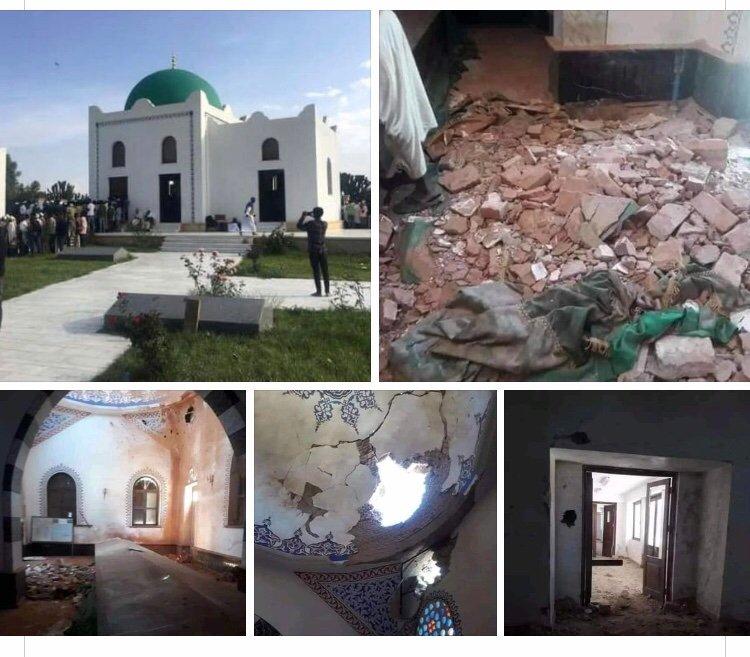
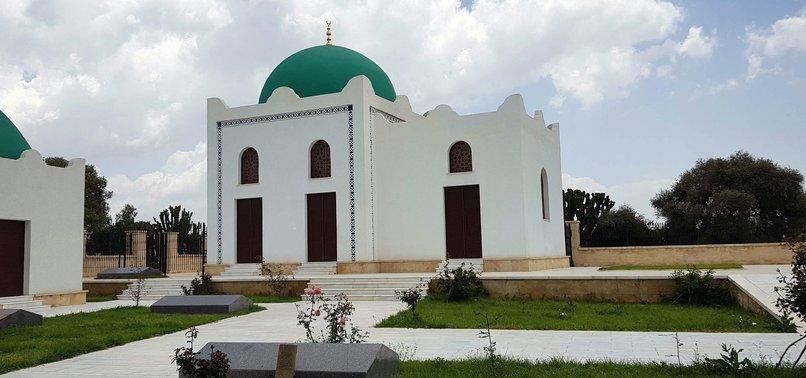
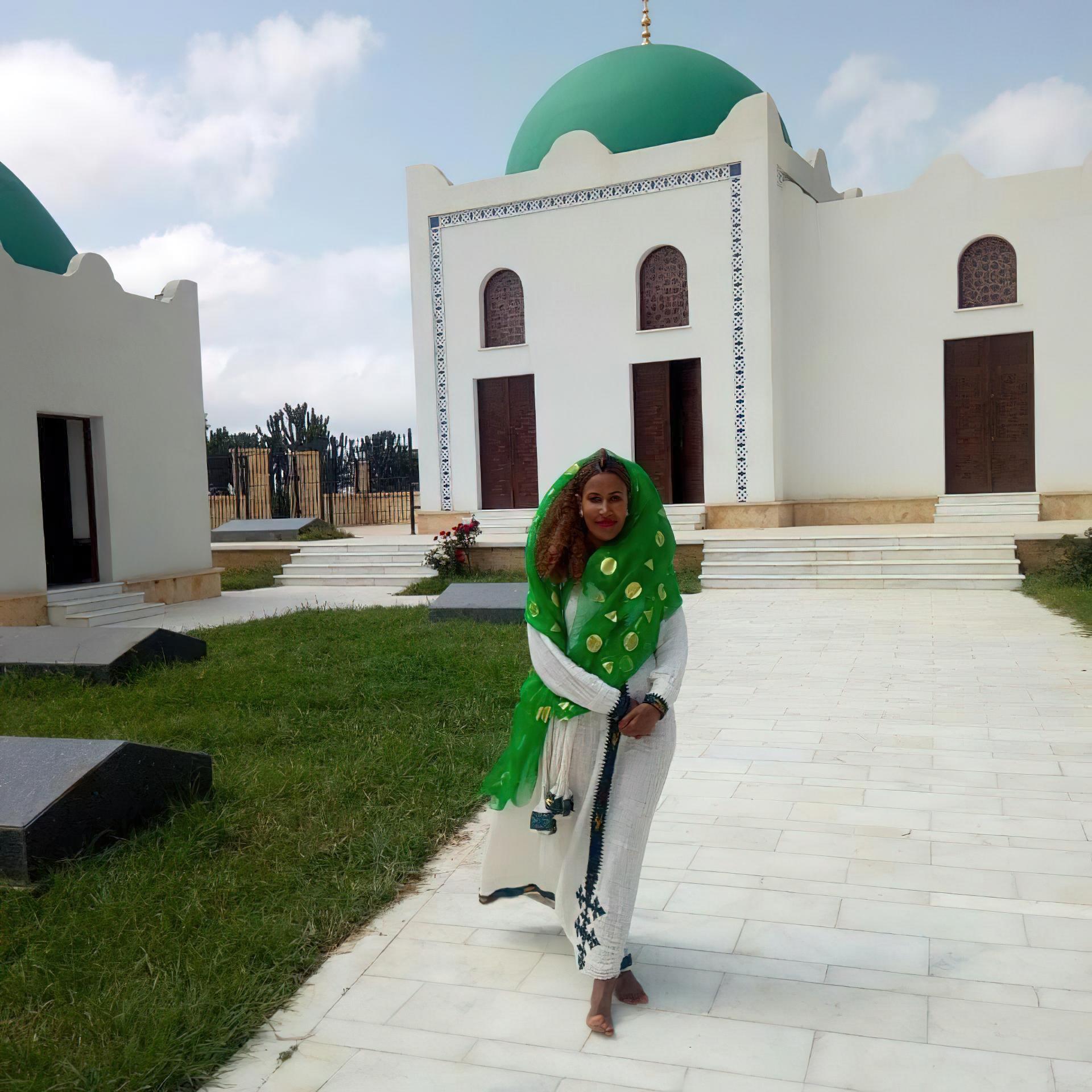
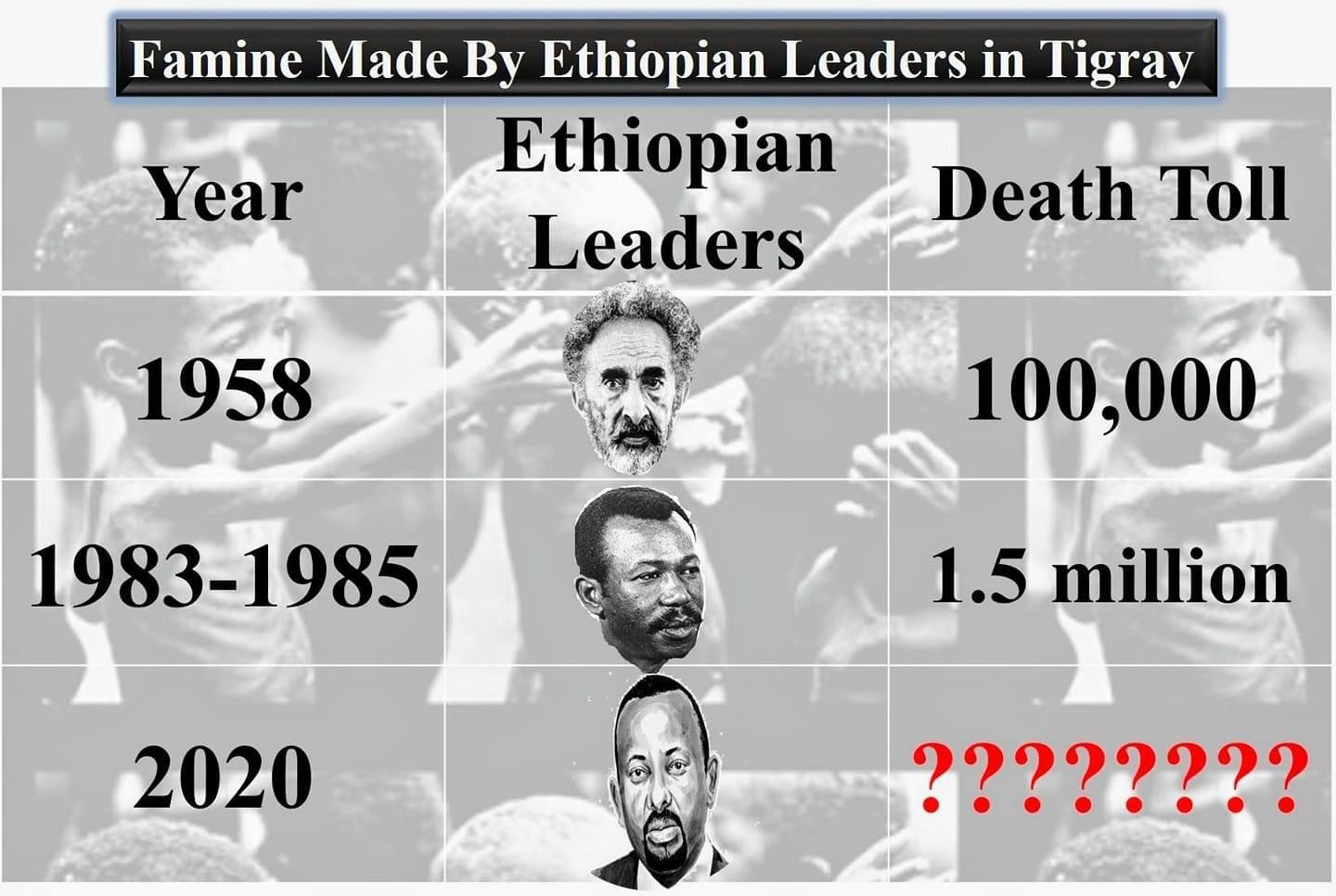 As per Ethiopian history, famine occurred in 1958 & 1983 and costed Tigray 1.6 million lives.
As per Ethiopian history, famine occurred in 1958 & 1983 and costed Tigray 1.6 million lives. 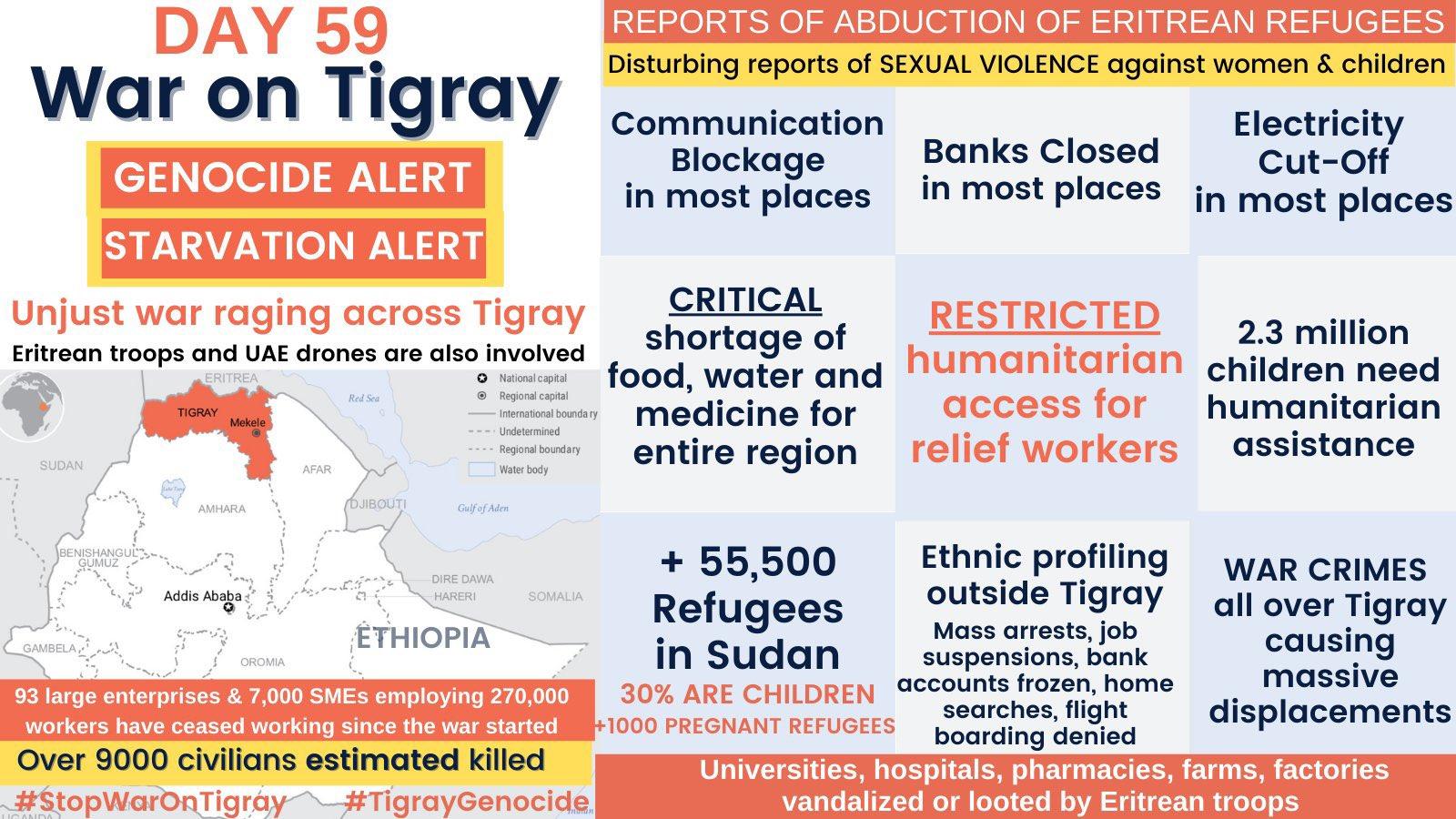
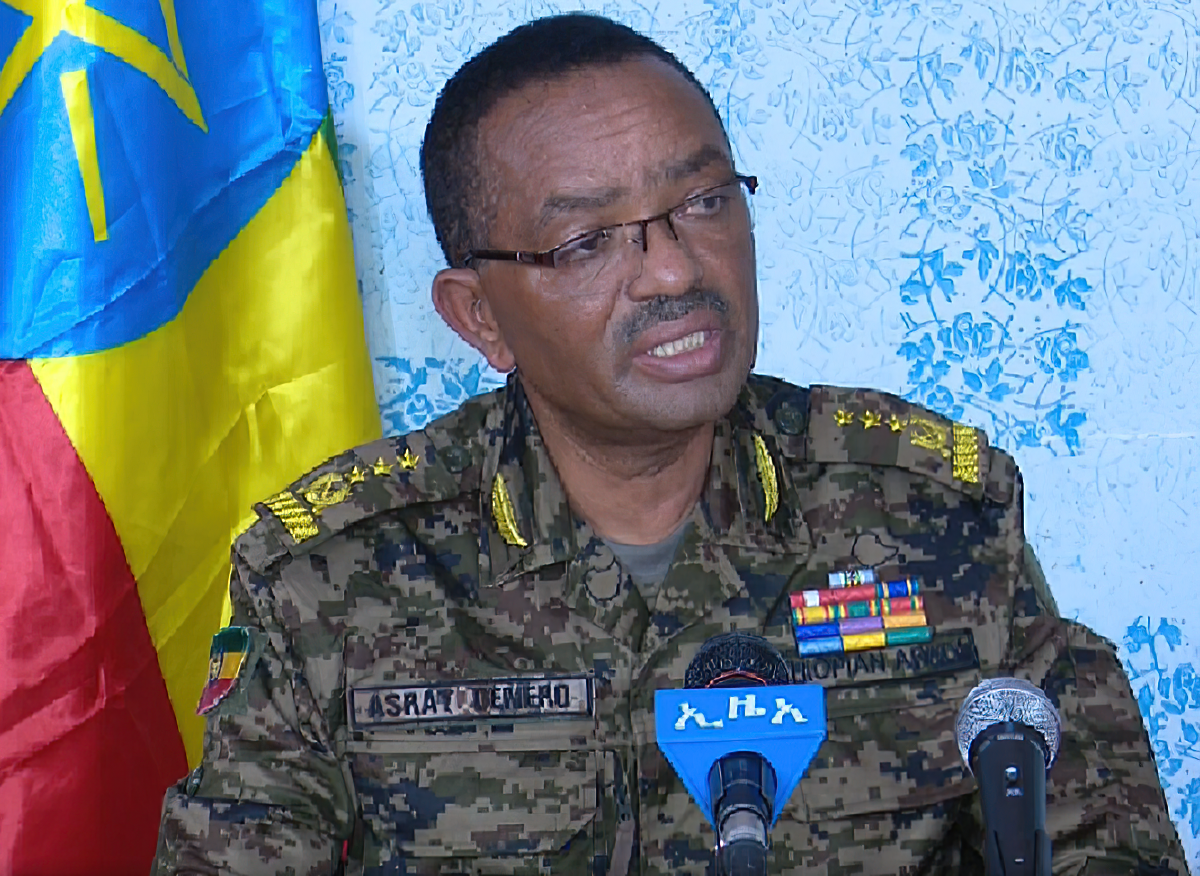
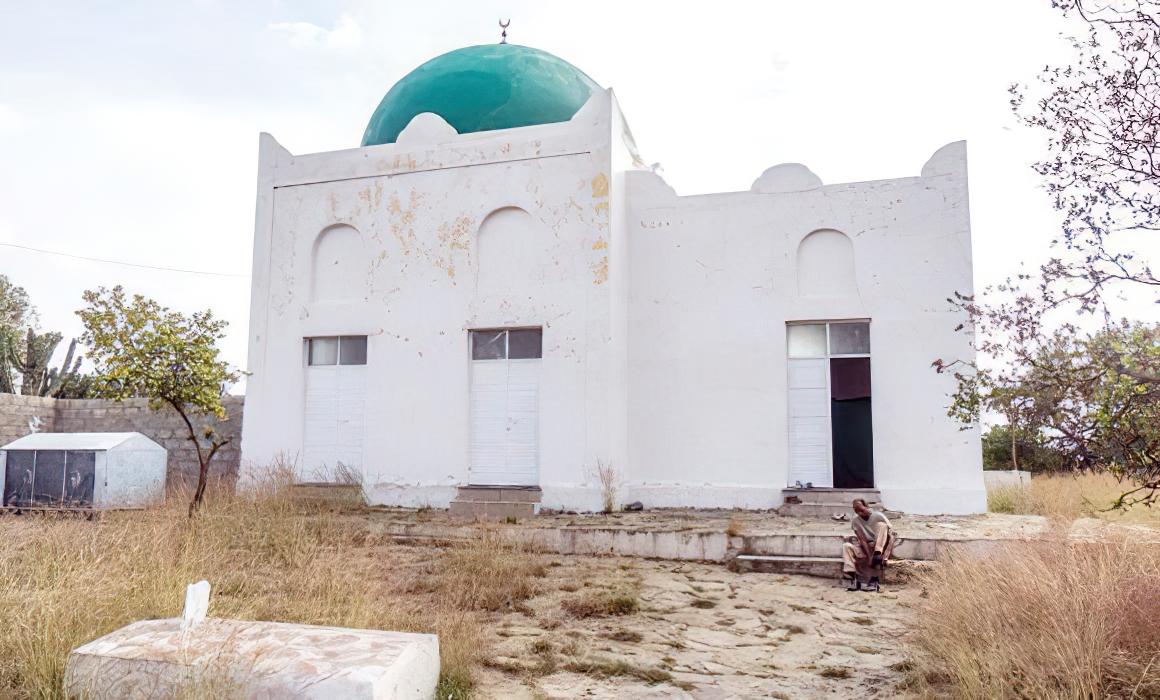
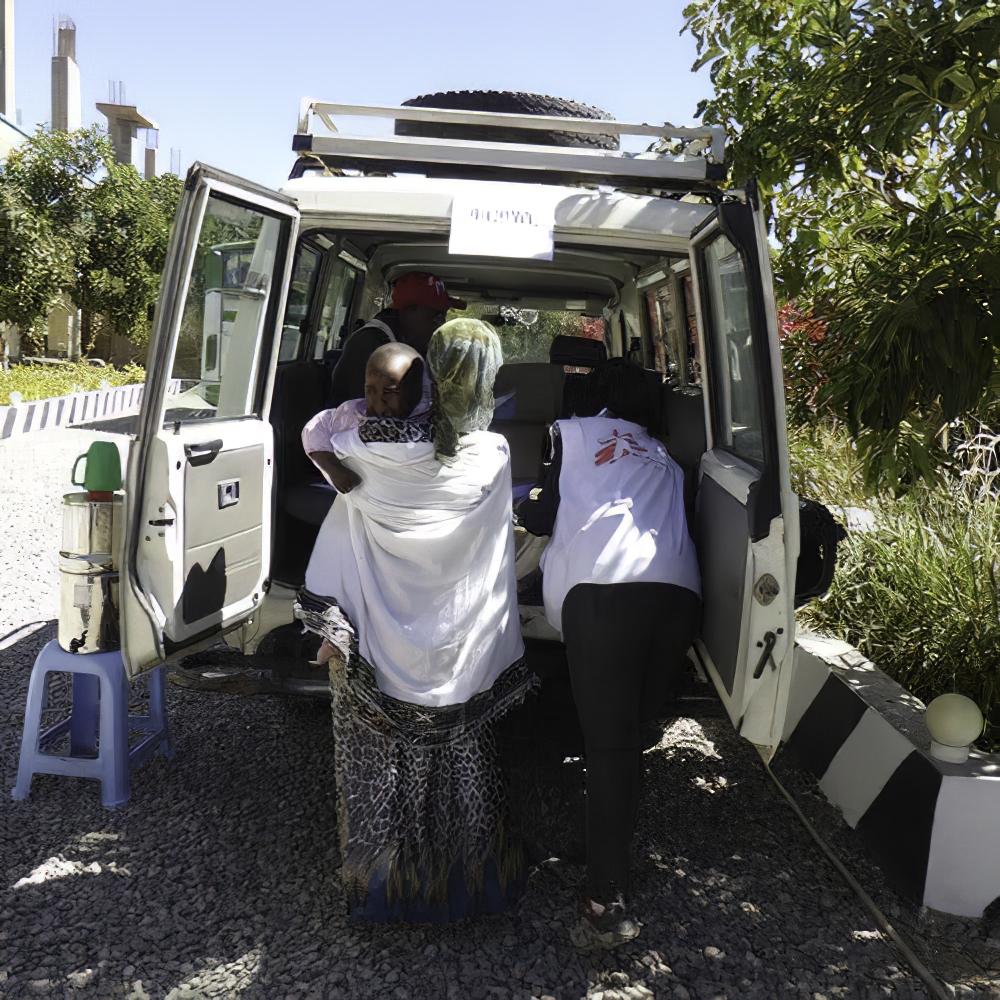 The local hospital was running at 30 to 40 per cent, with very little medication. Most significantly, there were almost no patients, which is always a very bad sign. We evaluated the hospital, with the idea of referring patients there as soon as possible from Adigrat, 120 kilometres to the north.
The local hospital was running at 30 to 40 per cent, with very little medication. Most significantly, there were almost no patients, which is always a very bad sign. We evaluated the hospital, with the idea of referring patients there as soon as possible from Adigrat, 120 kilometres to the north.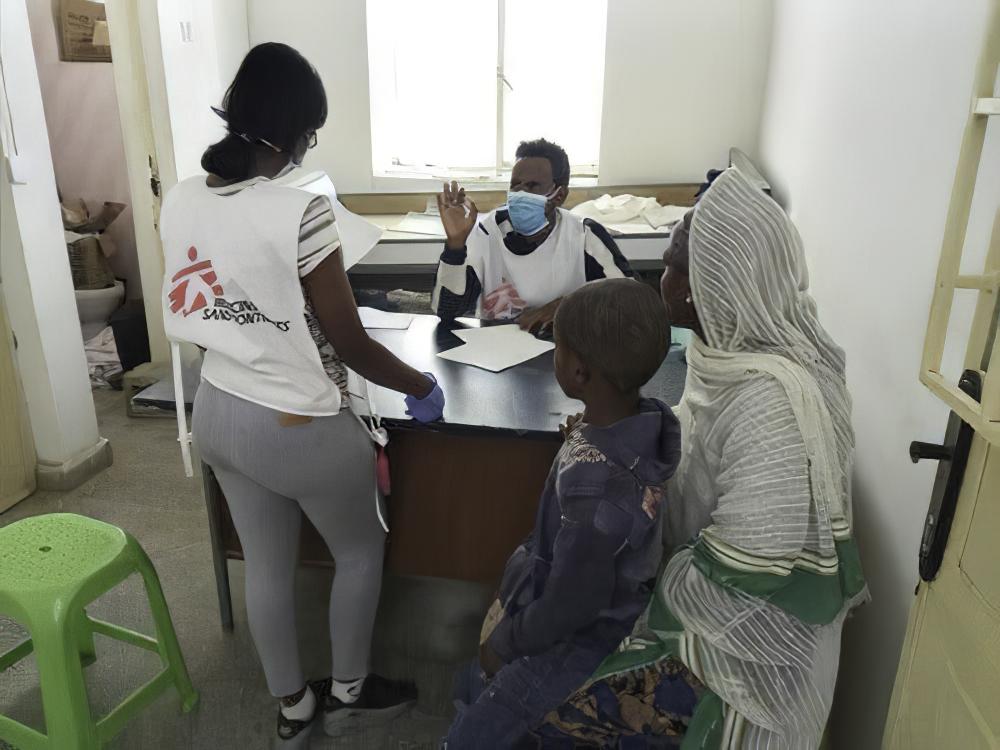 An MSF nurse and a translator prepare a donation of medical materials in Megab, south-west of Adigrat town, in the Tigray region of northern Ethiopia.
An MSF nurse and a translator prepare a donation of medical materials in Megab, south-west of Adigrat town, in the Tigray region of northern Ethiopia.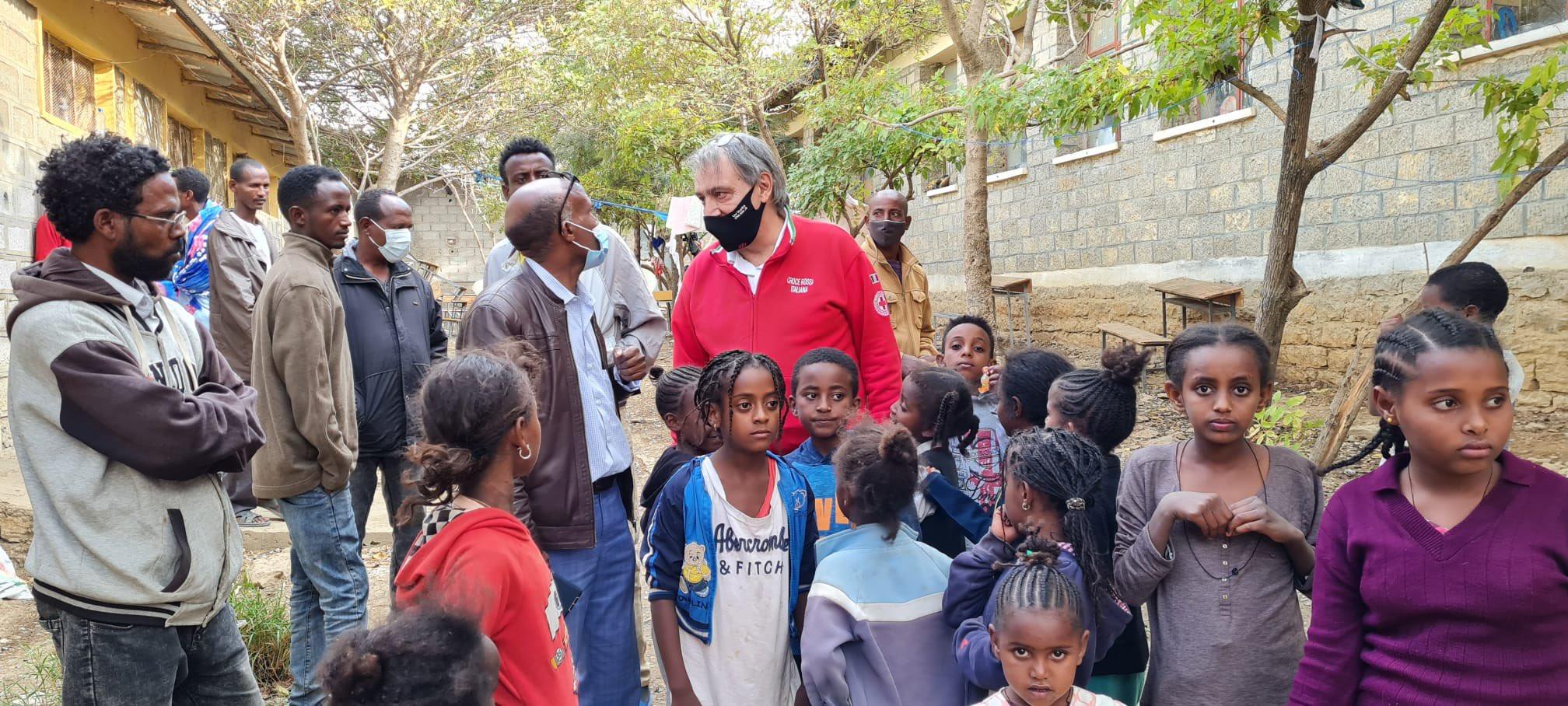
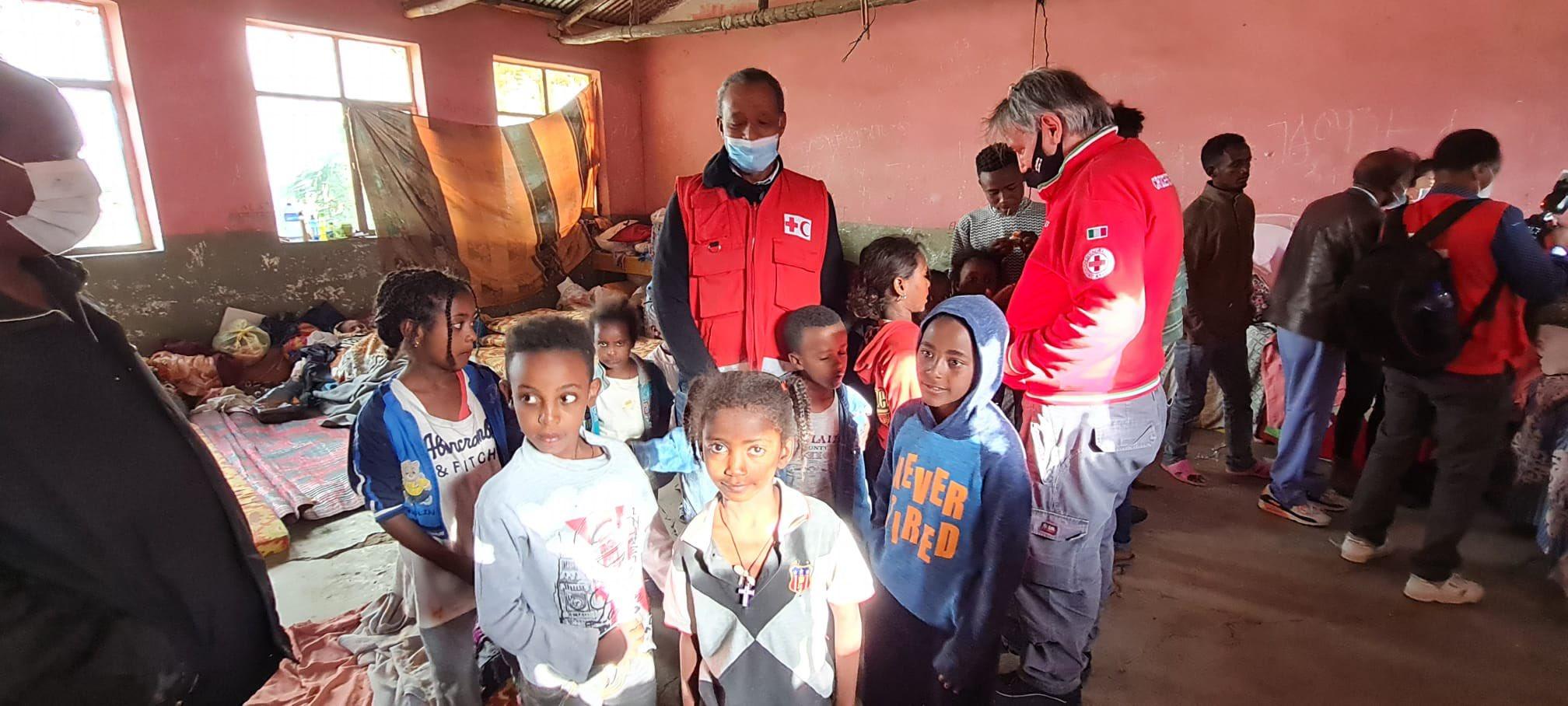
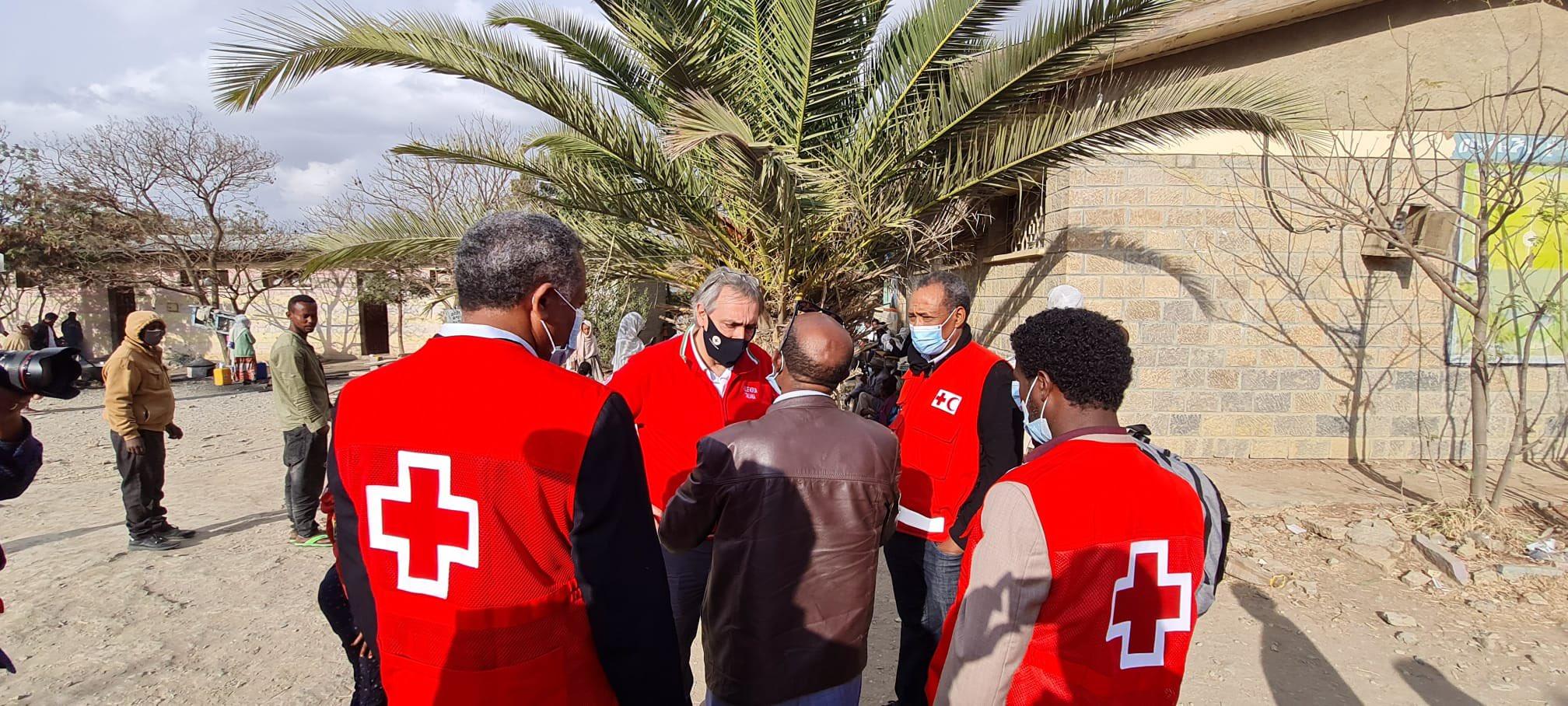
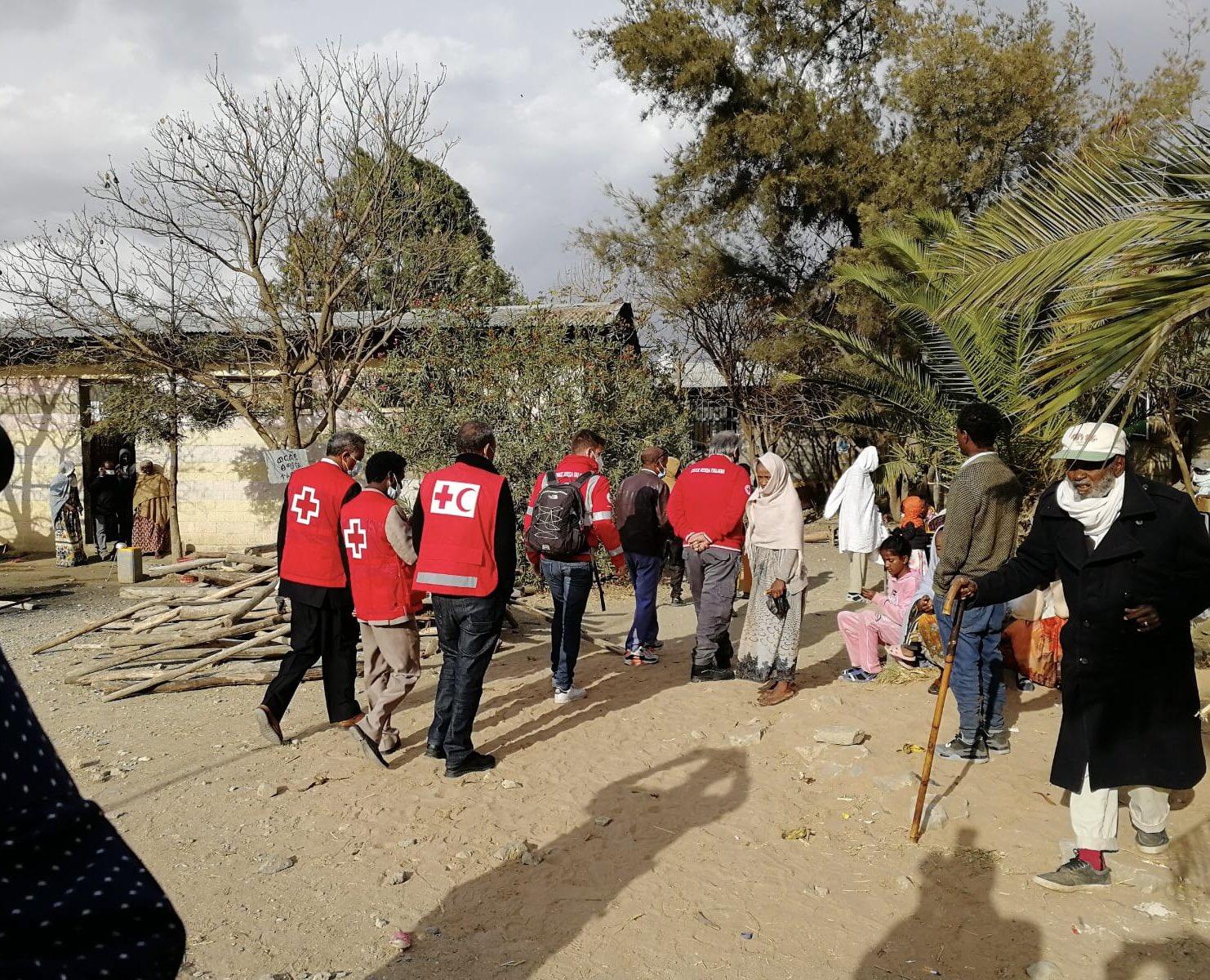 We must scale up humanitarian activities and we need safe and unhindered access everywhere.
We must scale up humanitarian activities and we need safe and unhindered access everywhere. 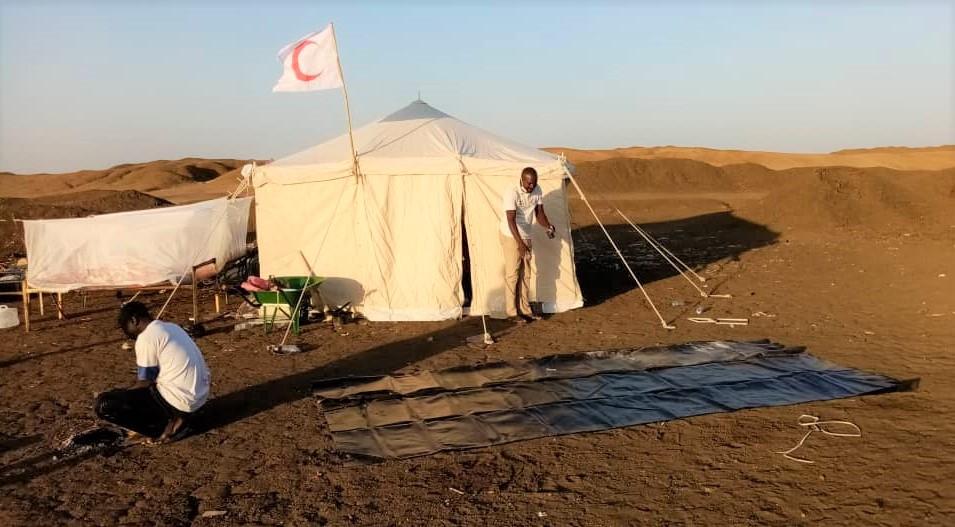
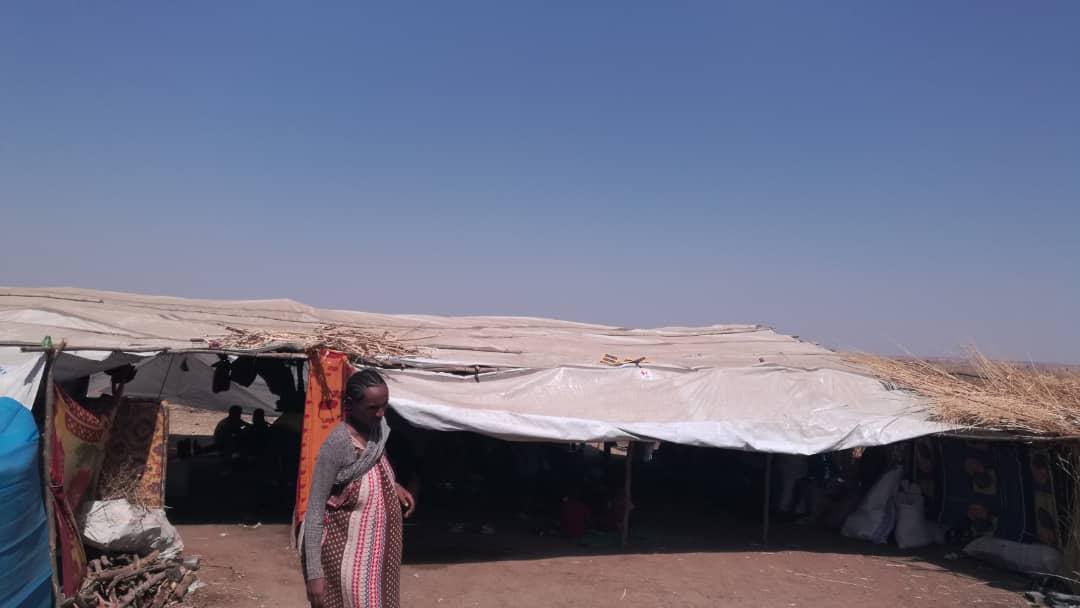
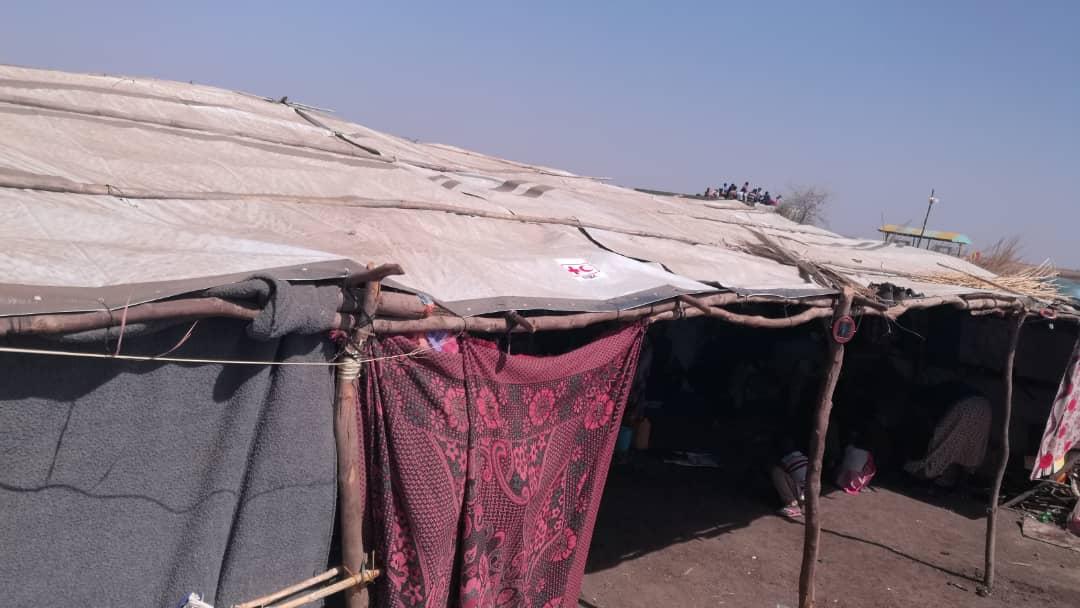 Sudanese Red Crescent teams are actively working to maintain hygiene among the many Ethiopian refugees living here.
Sudanese Red Crescent teams are actively working to maintain hygiene among the many Ethiopian refugees living here.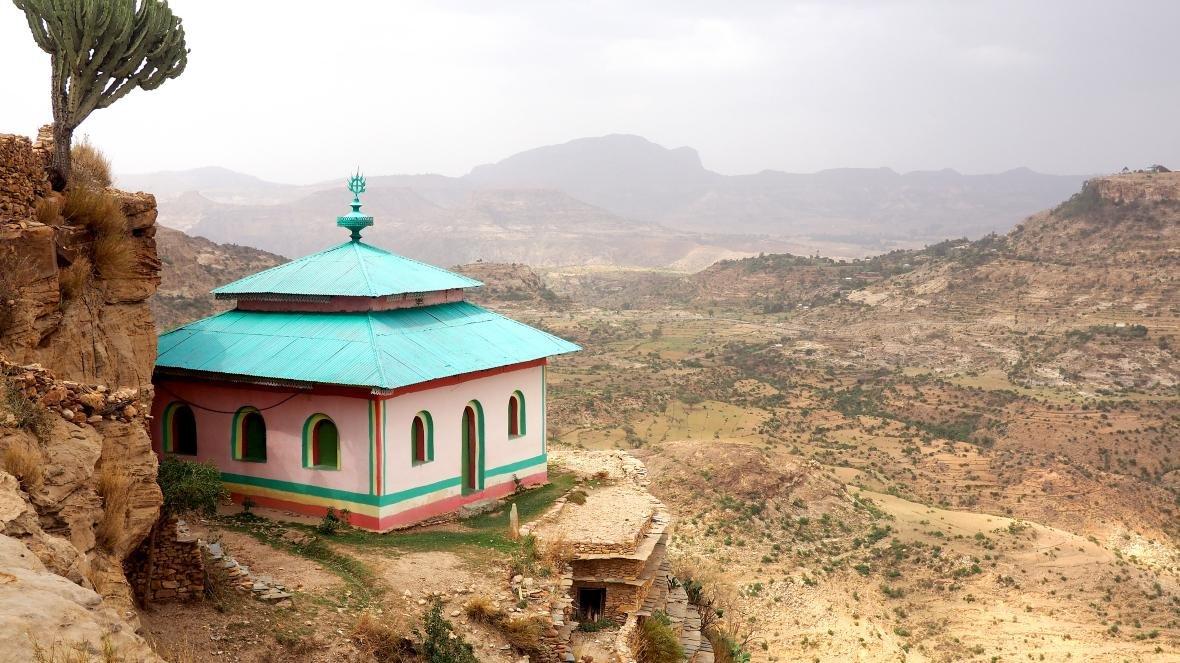
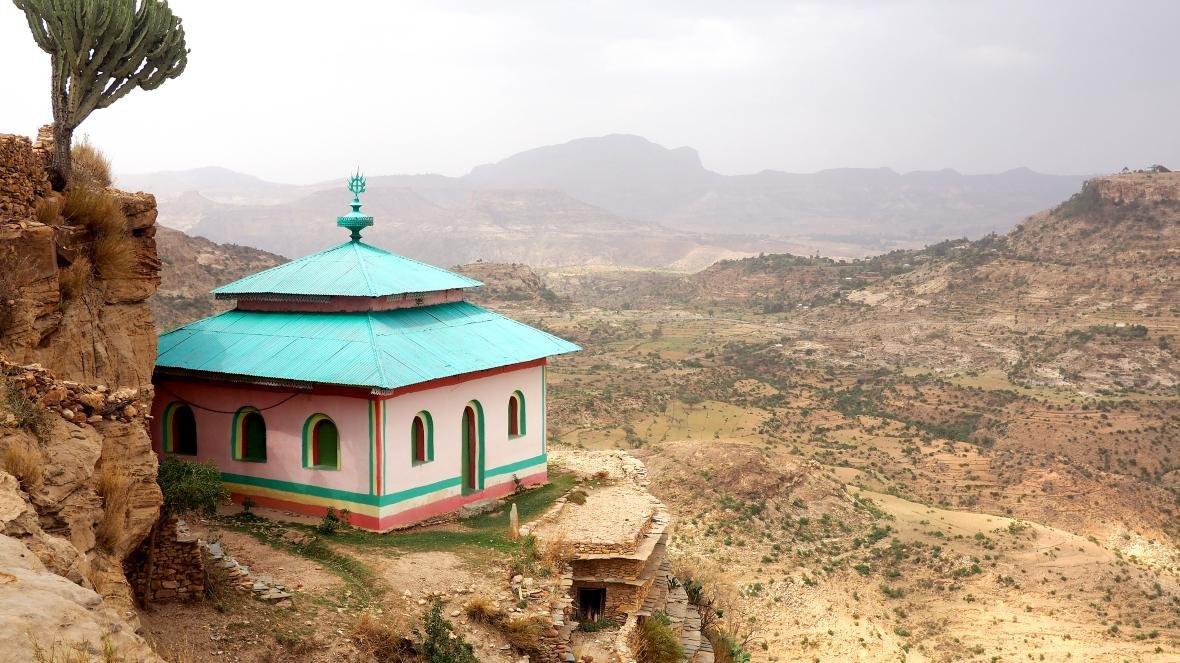
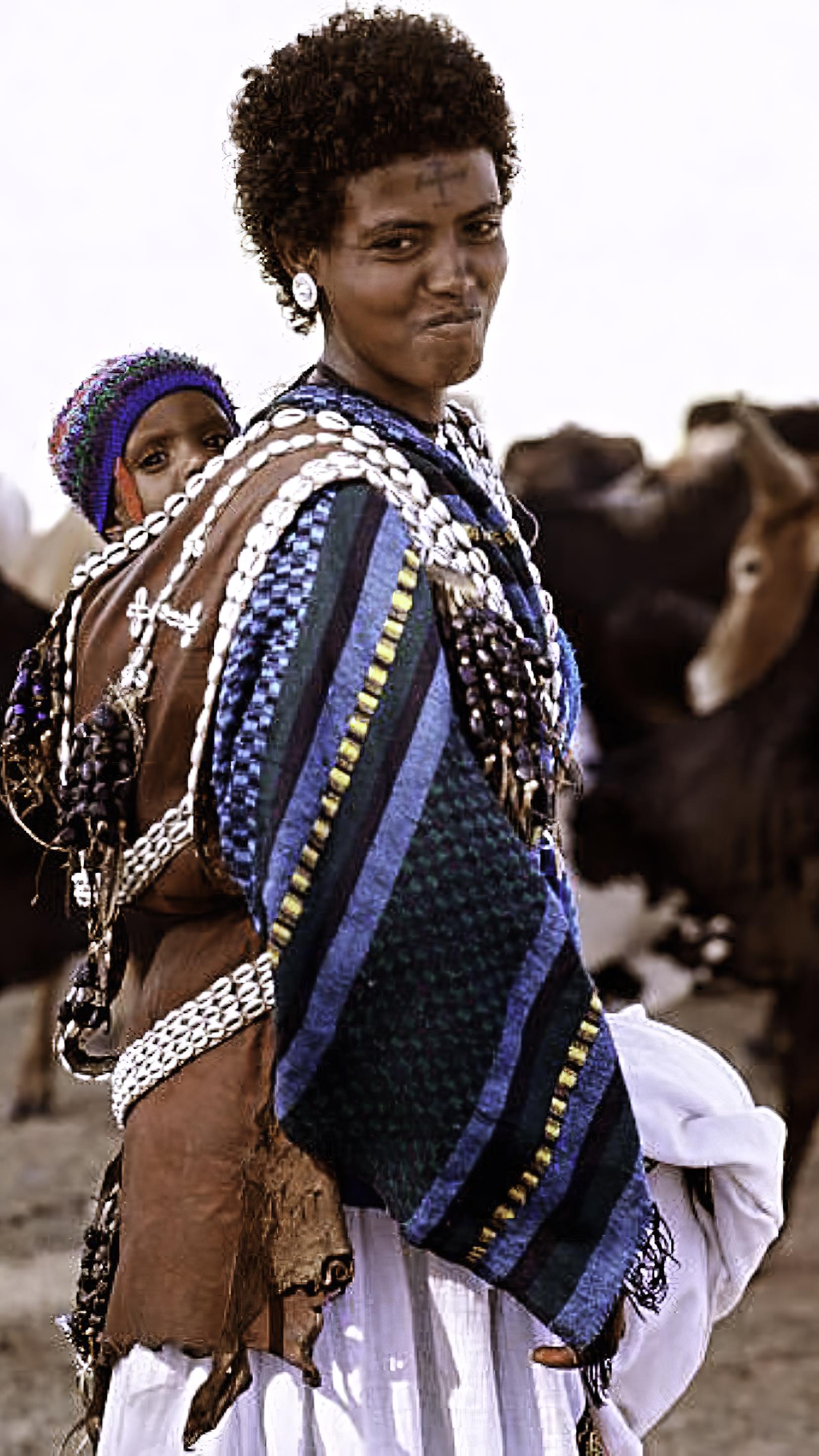 Land of resilient Land of perseverance Land of fair & just Land of heroes!
Land of resilient Land of perseverance Land of fair & just Land of heroes!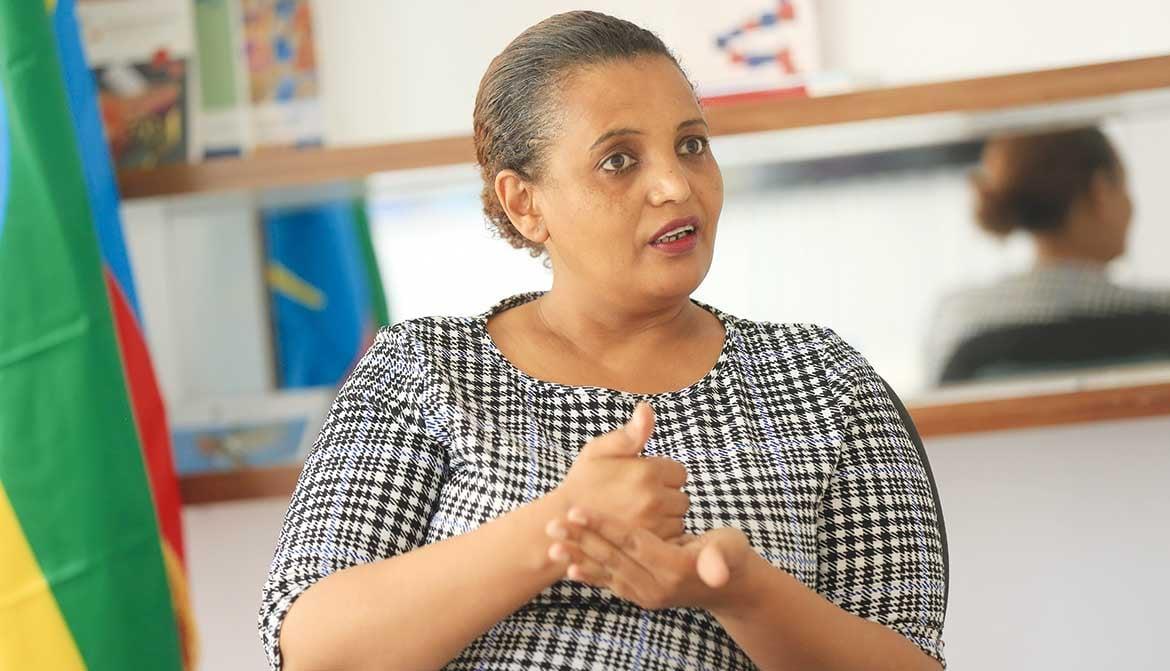 Although we requested comprehensive information from the regional government about the security situation in the region, we still did not get a reply. This is not right. Other institutions also do the same. They either don’t do it or if they do, they consider our institution as an alien entity. Although it maintains its independence, it has to be supported and they have the responsibility to provide the necessary support. It is not a matter of mere cooperation, but they are legally mandated to do so.
Although we requested comprehensive information from the regional government about the security situation in the region, we still did not get a reply. This is not right. Other institutions also do the same. They either don’t do it or if they do, they consider our institution as an alien entity. Although it maintains its independence, it has to be supported and they have the responsibility to provide the necessary support. It is not a matter of mere cooperation, but they are legally mandated to do so. 